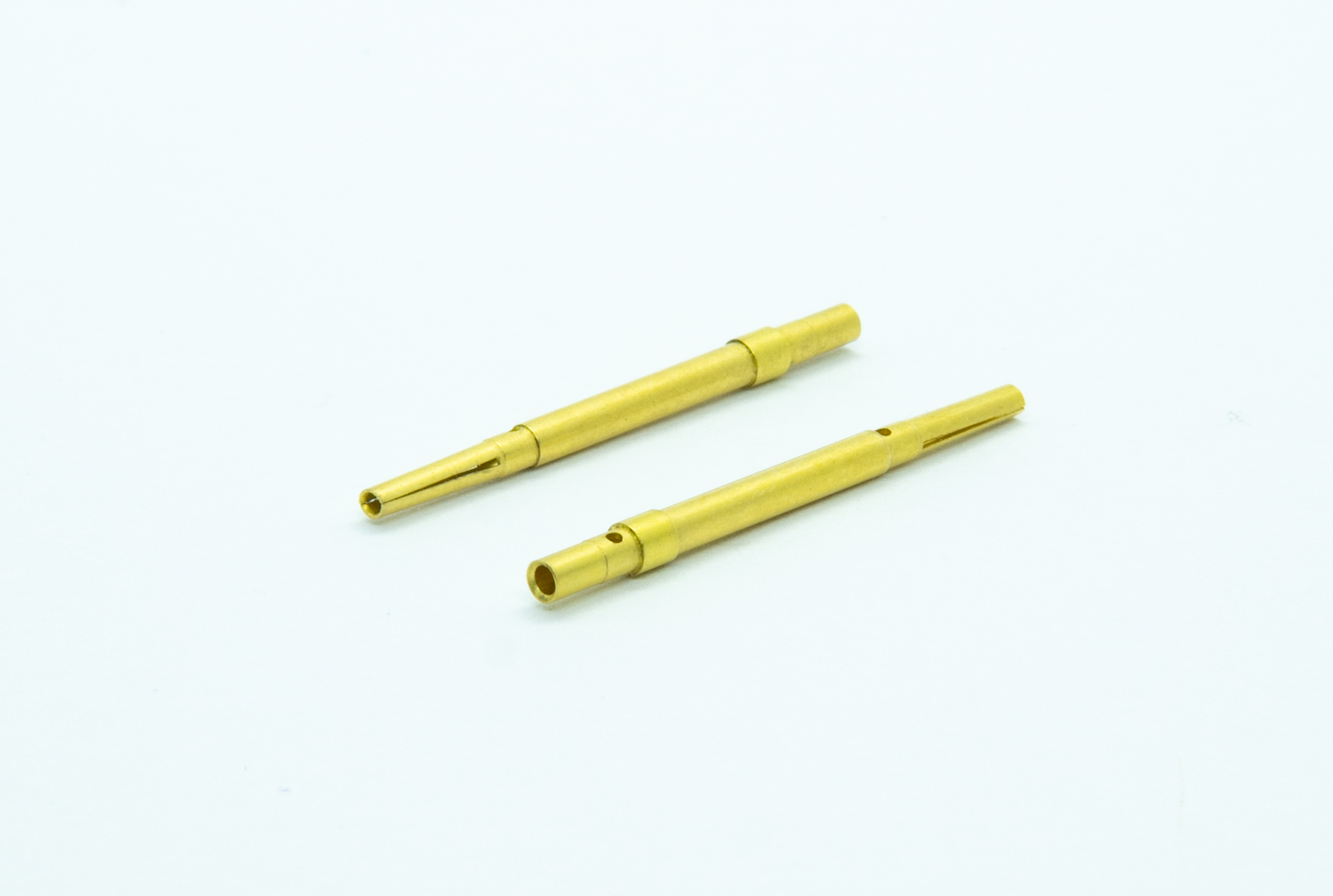By Franky Nguyen, AVF Decolletage
Introduction
Connector Pins and Sockets require extreme precision. Tolerances as tight as ±0.005 mm are common, and any inconsistency can lead to poor conductivity, signal loss, or product failure. To achieve this precision, manufacturers use Swiss-type automatic lathes — either Swiss CNC machines or Swiss CAM machines.
At AVF Decolletage, we operate more than 350 Swiss-type machines, including both CNC and CAM models, to deliver consistent connector pins at scale. This article explains the difference between Swiss CNC and Swiss CAM, their advantages, and which is best for connector contact manufacturing.
What Are Swiss CNC Machines?
Swiss CNC lathes are computer-controlled machines. They use servo motors and programmable code to perform operations like turning, drilling, milling, and threading.
Advantages of Swiss CNC for connectors:
-
Ultra-precise tolerances (±0.005 mm).
-
Complex geometries and multi-axis machining.
-
Flexibility to switch between part designs.
-
Faster setup for small-to-medium batch runs.
-
Ideal for custom connector pins and sockets.
Industries: Aerospace, medical, and telecom, where quality and flexibility matter more than cost.
What Are Swiss CAM Machines?
Swiss CAM lathes are mechanically driven machines that use cams and linkages to control cutting tools. They are not programmable but instead rely on mechanical adjustments.
Advantages of Swiss CAM for connectors:
-
Extremely fast cycle times for high-volume production.
-
Lower production costs for simple, repeatable parts.
-
Proven reliability over decades.
-
Best for large-scale connector contact manufacturing.
Industries: Automotive, consumer electronics, and industrial equipment, where cost efficiency is critical.

Swiss CNC vs Swiss CAM: Key Differences
| Feature | Swiss CNC | Swiss CAM |
|---|---|---|
| Control | Computer-programmed | Mechanically cam-driven |
| Precision | ±0.005 mm | ±0.01 mm |
| Complexity | High (multi-axis, custom) | Low (simple parts) |
| Setup | Fast, flexible | Slower, requires cams |
| Cost | Higher per part | Lower for high-volume |
| Best For | Aerospace, medical, custom | Automotive, consumer electronics |
Which Is Best for Connector Contact Manufacturing?
The answer depends on volume, complexity, and industry requirements.
-
Swiss CNC is best when connectors require complex geometries, tight tolerances, or frequent design changes.
-
Swiss CAM is best when producing millions of simple connector pins at low cost.
At AVF Decolletage, we leverage both technologies. This allows us to serve diverse industries — from high-precision aerospace connectors to high-volume automotive contacts.
Case Studies
Medical Connectors
A customer required micro-sized connector pins for surgical devices. Swiss CNC lathes were used to achieve tight tolerances and complex geometries.
Automotive Pins
An automotive supplier needed millions of simple brass pins. Swiss CAM machines produced them at high speed and low cost.
Future of Swiss Machining
The future lies in hybrid solutions — combining CNC flexibility with CAM speed. At AVF Decolletage, we continue investing in both, ensuring we can deliver cost-effective solutions without sacrificing quality.
Conclusion
Swiss CNC and Swiss CAM machines both play critical roles in connector contact manufacturing. CNC provides flexibility and precision, while CAM ensures cost efficiency at scale. At AVF Decolletage, we use both technologies to meet the needs of global industries.
FAQ
Q1: Which is more precise, Swiss CNC or CAM?
Swiss CNC, with tolerances as tight as ±0.005 mm.
Q2: Which is cheaper for high volumes?
Swiss CAM, due to faster cycle times and lower costs.
Q3: Does AVF Decolletage use both?
Yes, we operate over 350 Swiss CNC and CAM machines.
Q4: Which industries prefer CNC?
Aerospace, medical, and telecom.
Q5: Which industries prefer CAM?
Automotive, consumer electronics, and industrial.


